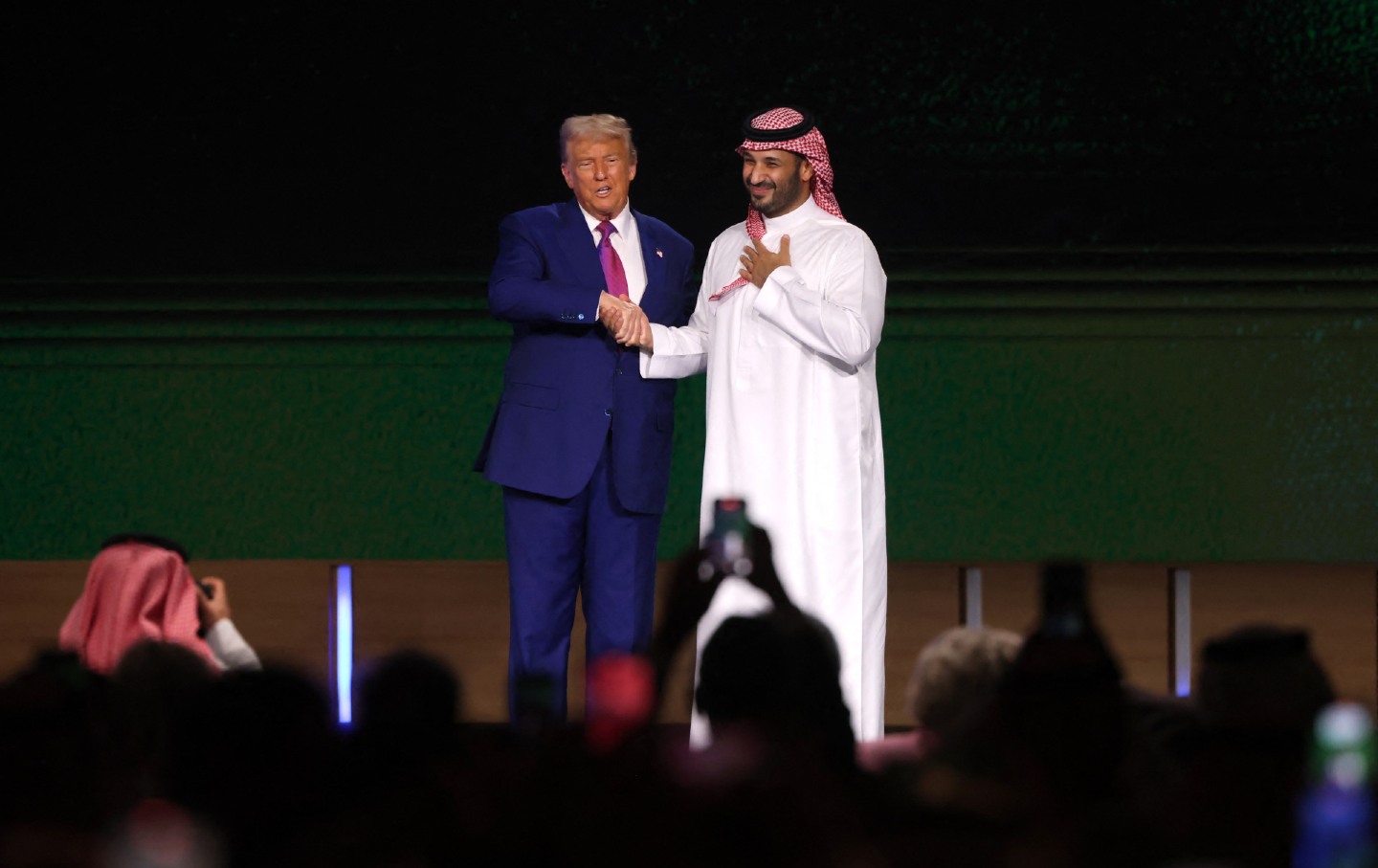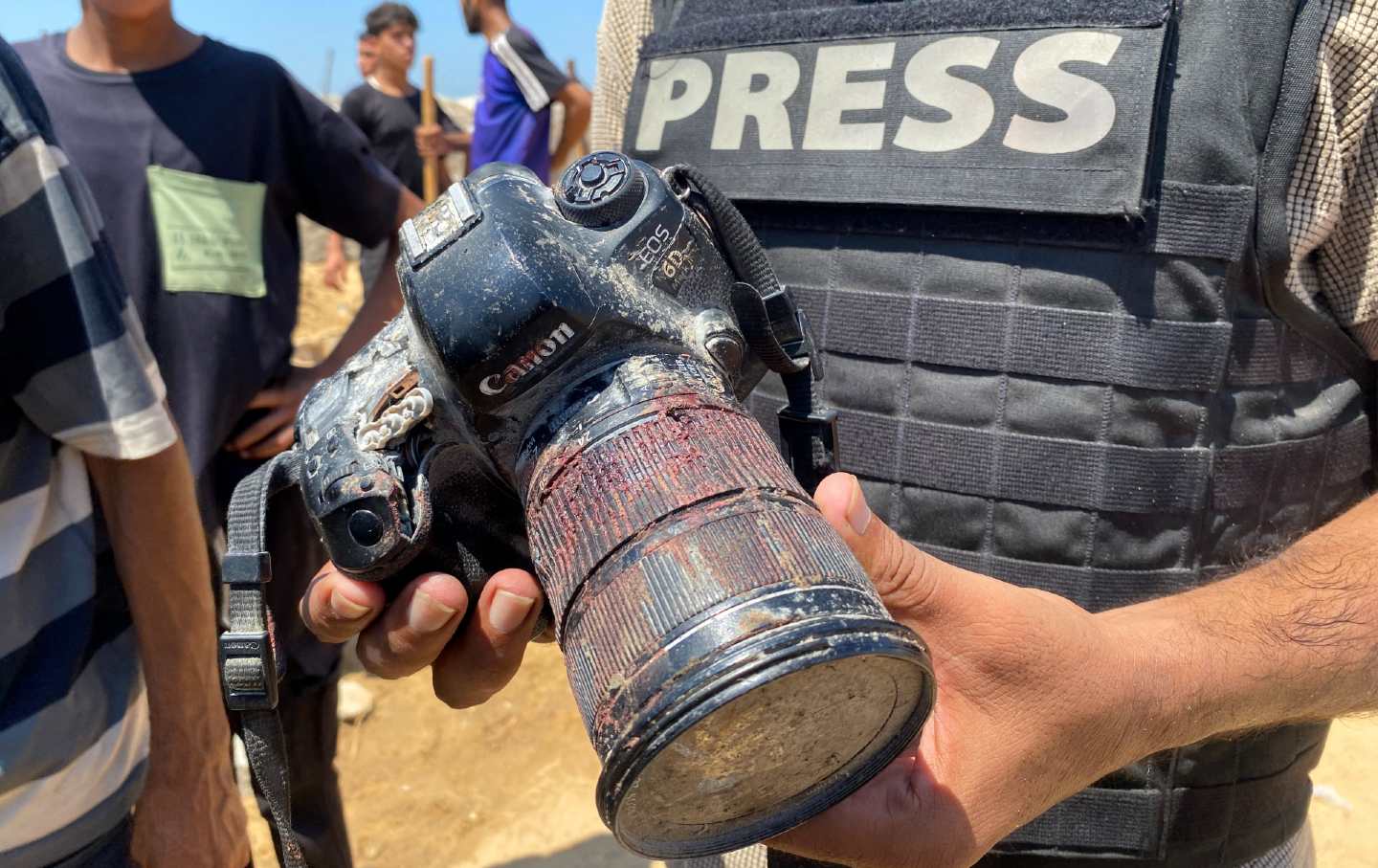We in Gaza will remember the martyrs – those who died teaching, telling, healing, caring for people and surviving. We will keep their memory like fire in our hearts. And we'll start again.
Palestinians walk along Al-Rashid Road towards Gaza City from Nuseirat in the central Gaza Strip, October 10, 2025.
(Bashar Taleb/AFP via Getty Images)
After two years of merciless genocide, a ceasefire came. We Gazans are filled with mixed emotions: joy at the silence that followed the intense bombing, but a sadness that lingers deep inside. Hope and grief intertwine as we begin to heal amid the echoes of loss and survival.
Yes, the missiles stopped. But our war is far from over. The real war – the war against grief, destruction and despair – has only just begun.
About 70,000 people, as far as we know, have been killed in the last two years. Thousands of people are still buried under the rubble. We don't even know all their names. These are not just numbers. These are entire families wiped out, students who will never return to school, newborns who never managed to cope with their first cry. These are my neighbors, my friends, my relatives, my people. Gaza is now more than just ruins; these are memories, traumas and broken dreams, shrouded in dust and blood.
“Ceasefire! Ceasefire!”
Yesterday I was in our small apartment in the north of Gaza, in the Al-Rimal area, where my family and I have lived since the days of the IOF soldiers. destroyed our home. I had just finished making tea and was studying for an exam that I had to take online no matter what.
Then my 21-year-old sister Huda was awakened by a phone call. Her friend told her that the ceasefire would start at 12. evening. “Truce! Truce!” she shouted, her voice shaking with disbelief. The whole house erupted: some of us laughed, some of us cried, and we all dared to hope, if only for a moment. My 10-year-old brother Abedrahim jumped up from his mattress and started dancing around the room shouting, “The genocide is over! Finally, we will eat chicken!”
But my mother remained cautious. “God help us,” she said. “They will bomb us heavily before there is a ceasefire.” And she was right. That morning became one of the bloodiest.
Even in the midst of this fragile joy, we grieved. We mourned for our home. We grieved for the people we lost. We grieved because we survived, and survival has its weight. I told my family: “During the brutal war, we said that a new war would begin as soon as this one ended. Now it is over – and the next war has begun.”
I walked through the ruins of Al Rimal in search of a café with internet access to take the exam. The streets were unrecognizable. Shops were destroyed. The houses were piles of ash and steel.
I met my 27-year-old friend Khaled Al-Sakka, the only survivor of his entire family. When I told him about the ceasefire, his eyes filled with tears. “Why was I left to suffer alone?!” he asked. I didn't have an answer. I just hugged him and whispered, “God gives you strength.”
I found a cafe and took the exam to the sound of shelling.
Last night, the occupying forces carried out their latest wave of airstrikes. More than 40 people died. Their bodies are still lying under the rubble – Civil Defense employees do not have the means to remove them.
“Finally we will eat without fear”
If this deal goes through, the checkpoints will be opened and food will return to Gaza. Vegetables and fruits will finally return. We will once again prepare a traditional Gazan salad – tomatoes, cucumbers, green peppers and lemon. Chicken will return to our tables, as will eggs. We will eat without wondering whether we will be able to afford food tomorrow or whether we will live to see the next meal.
Cooking gas will return. You no longer have to get up early to start a fire, cough for hours from the smoke to boil tea or warm bread. No more rubbing your eyes from the smoke that has filled our kitchens and lungs.
And finally, my little brother Abedrahim will play football with my little cousins outside without fear of an air strike or a stray bullet.
For the first time in months, I can sleep at night with my head on the pillow without worrying about whether I'll wake up alive the next morning.
I will study again – not with fear and adrenaline rush, but with some kind of calm.
But the buzzing of Israeli drones will not stop. It is a constant in our lives, this terrible noise, a daily reminder that even in the absence of genocide, we are not free. Sometimes I wonder if we're destined to live with the noise forana forever.
During the war, we buried our loved ones and kept moving, we were in survival mode. We had no time to mourn. There is no time to sit with grief. We were too busy figuring out where to find water, how to get food, and whether we were going to get bombed at any moment.
But now we will survive the genocide. The war is over, but the funeral is just beginning. The mourning we were denied is here now, and we feel the weight of every name, every face we have lost. We scroll through photos and videos, haunted by smiling faces that are no longer with us. Silence screams louder than rockets ever screamed.
Where should we go next?
Gaza lies in ruins. We have no hospitals, no schools, no universities. Before this genocide, I was a first-year student. I lived university life for only a week and a half. Now I’m studying online, like many others, but how can a screen replace the laughter of classmates, the smell of the library, the dream of the future?
Our hospitals don't just lack supplies, they don't have enough doctors. We have lost heroes like Dr. Adnan Al-Bursh. We've lost our storytellers and journalists, like Anas Al-Sharifwho is no longer alive to tell us that the war is over.
But we survived. And, as in literature, there must always be a survivor to tell the story of the dead. We, those who made it out alive, bear a debt of memory. We have lived to speak the names of the martyrs, to share their stories and to keep their voices alive.
So many people are still missing. The son of my father's friend, 21-year-old Akram Rajab, disappeared two weeks ago while fleeing Tel al-Hawa. Nobody knows whether he is alive or buried under concrete.
Now, for the first time in months, we can begin to recover bodies. But everyone who was pulled from the rubble confirmed the family's worst nightmare.
We will rebuild, but nothing will be the same
Yes, the genocide has stopped. We hope the famine will end soon. But we still stand among the ruins. The buildings are gone, but what's worse is that the foundation of our lives has cracked. We will restore. We must. We owe it to those who did not survive.
My uncles will reopen the family supermarket. I will work there again. This place was once bustling with life: Muslims and Christians came here early in the morning before work, children giggled on their way to school. Many of these people and children have already left. I'll never see Ahmed and Rasha Al-Arir again— kids who carried backpacks heavier than their shoulders.
Popular
“swipe left below to view more authors”Swipe →
I'll go eat shawarma at Thai restaurant. I’ll return to my favorite pastime – long evening walks along the seashore, which I haven’t done for two years. I will walk from sunset to moonrise, listening to the waves and the laughter of children playing in the sand. But I will do it without my cousin, best friend and brother Abed Al Wahab, who was killed in December 2024 at the age of 28. Every step will carry the memory of him.
We will welcome loved ones who have fled south, but not everyone will return. The IDF killed many who sought safety in the so-called “safe zones.” Among them was the family of my father's cousin Yusuf. A midnight strike on September 28, 2025, struck the apartment next door to theirs as they prepared to pitch their tent. His wife Nidaa, 18-year-old daughter Ruaa and 11-year-old son Hamoud with curly yellow hair were killed. Yusuf survived along with his 21-year-old daughter Aya, whose leg and pelvis were broken, and 17-year-old Aboud, who remembers hearing his mother's last breath.
This ceasefire marks the end of bombing, carpet bombing, tanks and warplanes, but the beginning of our greatest test: the war of reconstruction. Rebuilding our homes, our schools, our hospitals, our lives. Restoring our hope, our dignity, our strength. Rebuilding a future in a place that has tried to kill us time and time again.
We will remember the martyrs—those who died teaching, sharing, healing, caring, surviving. We will keep their memory like fire in our hearts. And we'll start again.
The real war is now. War of Healing. Remembering. Forget about refusal. About the restart. Chase our dreams.
Survival is not the end, it is our beginning.
More from Nation
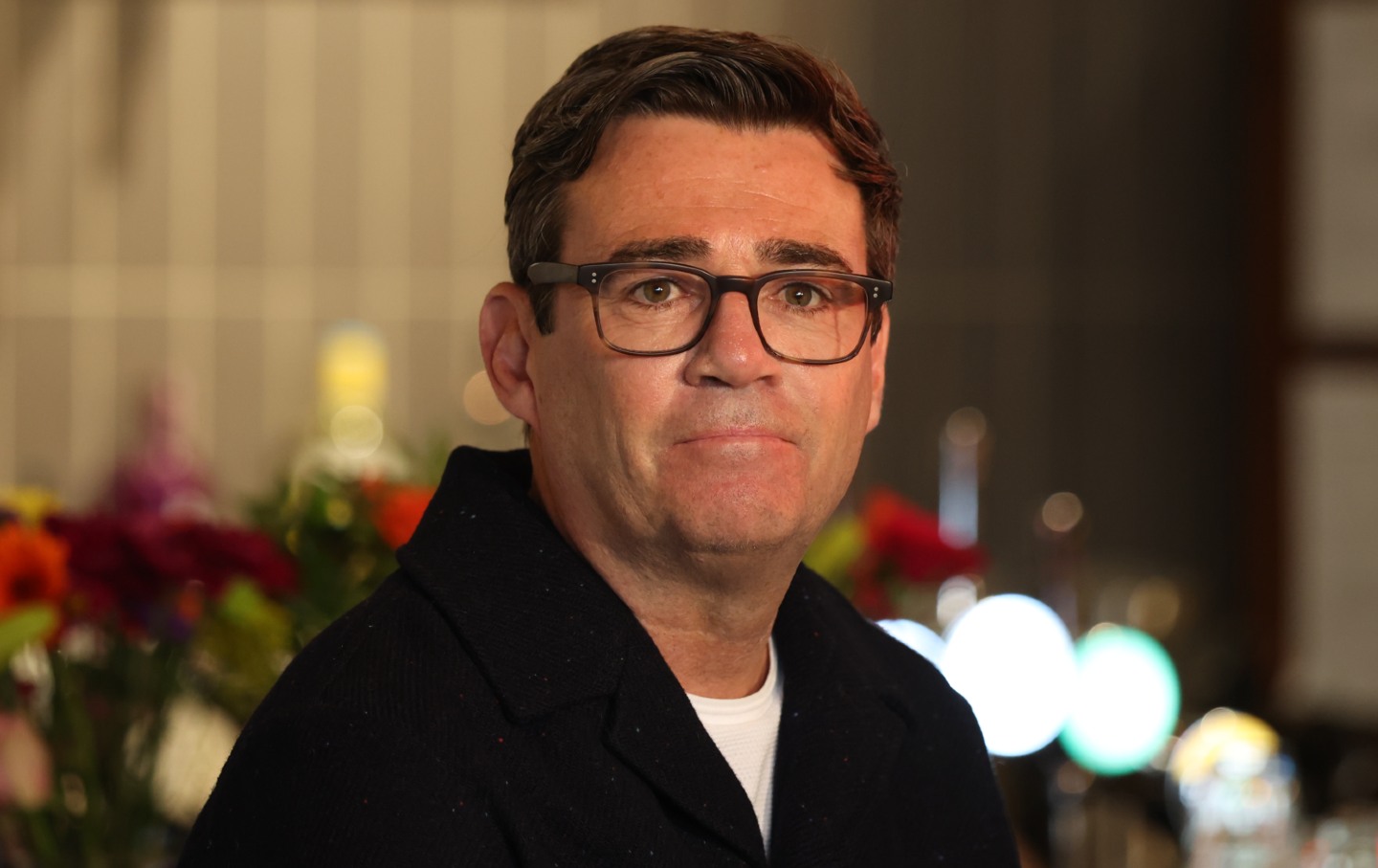
At a sombre Labor Party conference in Liverpool, disillusionment with Keir Starmer gave way to open talk about a successor – and the name on everyone's lips was Andy Burnham.
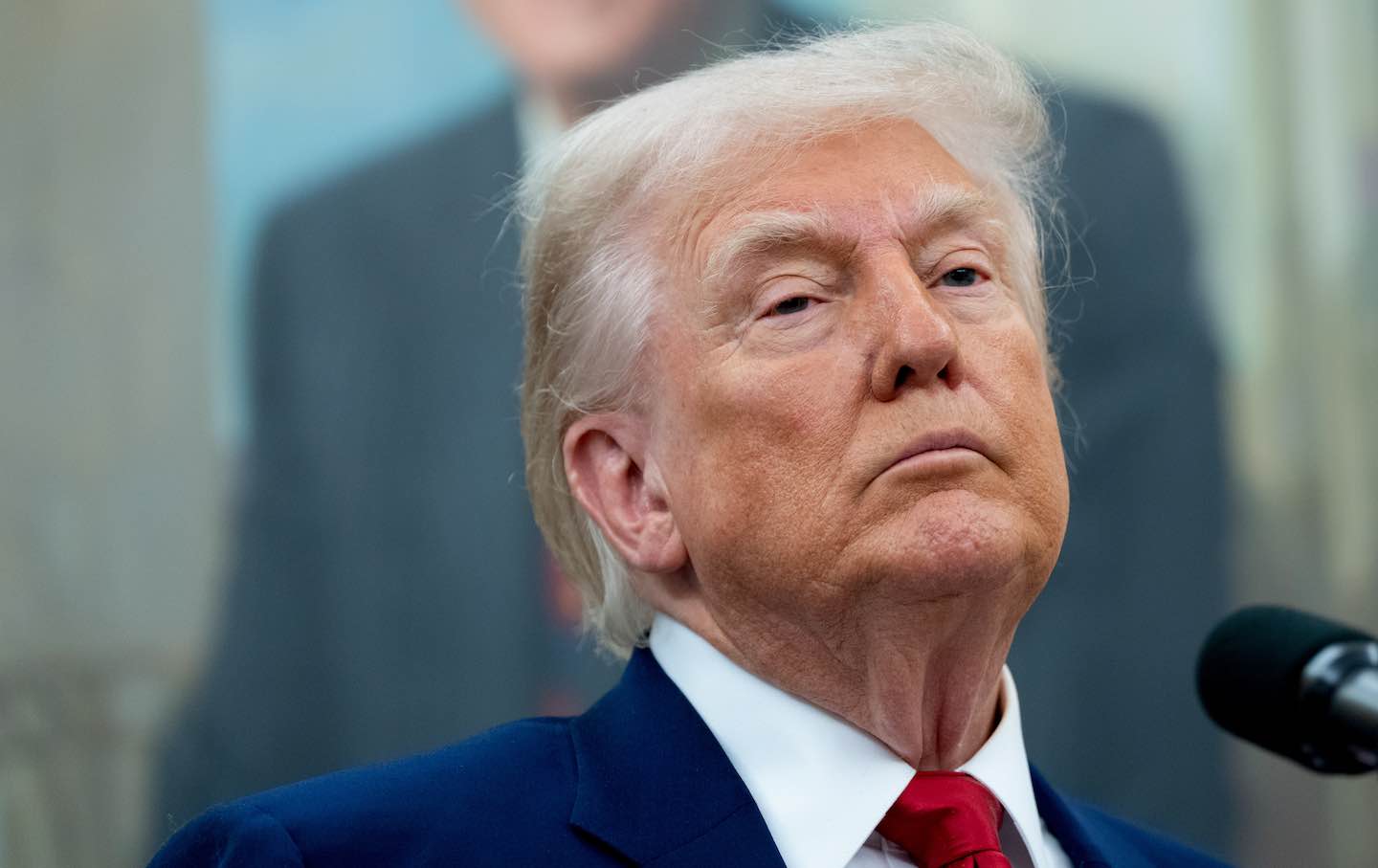
Through the obedience of Congress, the complicity of the Supreme Court, and the compromise of media corporations, Trump has paved a clear path to international irrelevance.
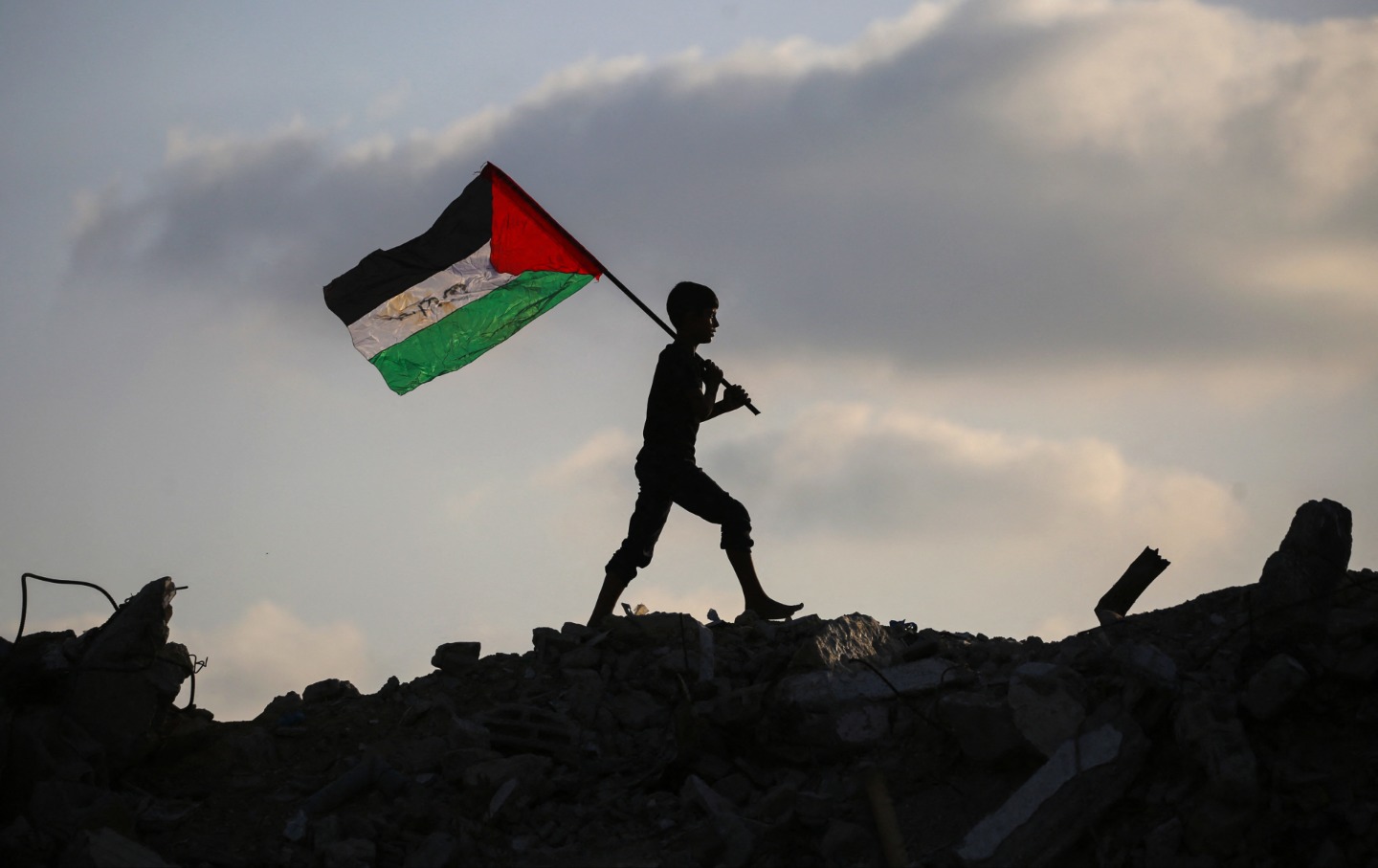
The world before October 7, 2023 is a distant memory. But we continue, driven by the determination that this land will once again be a place of life.
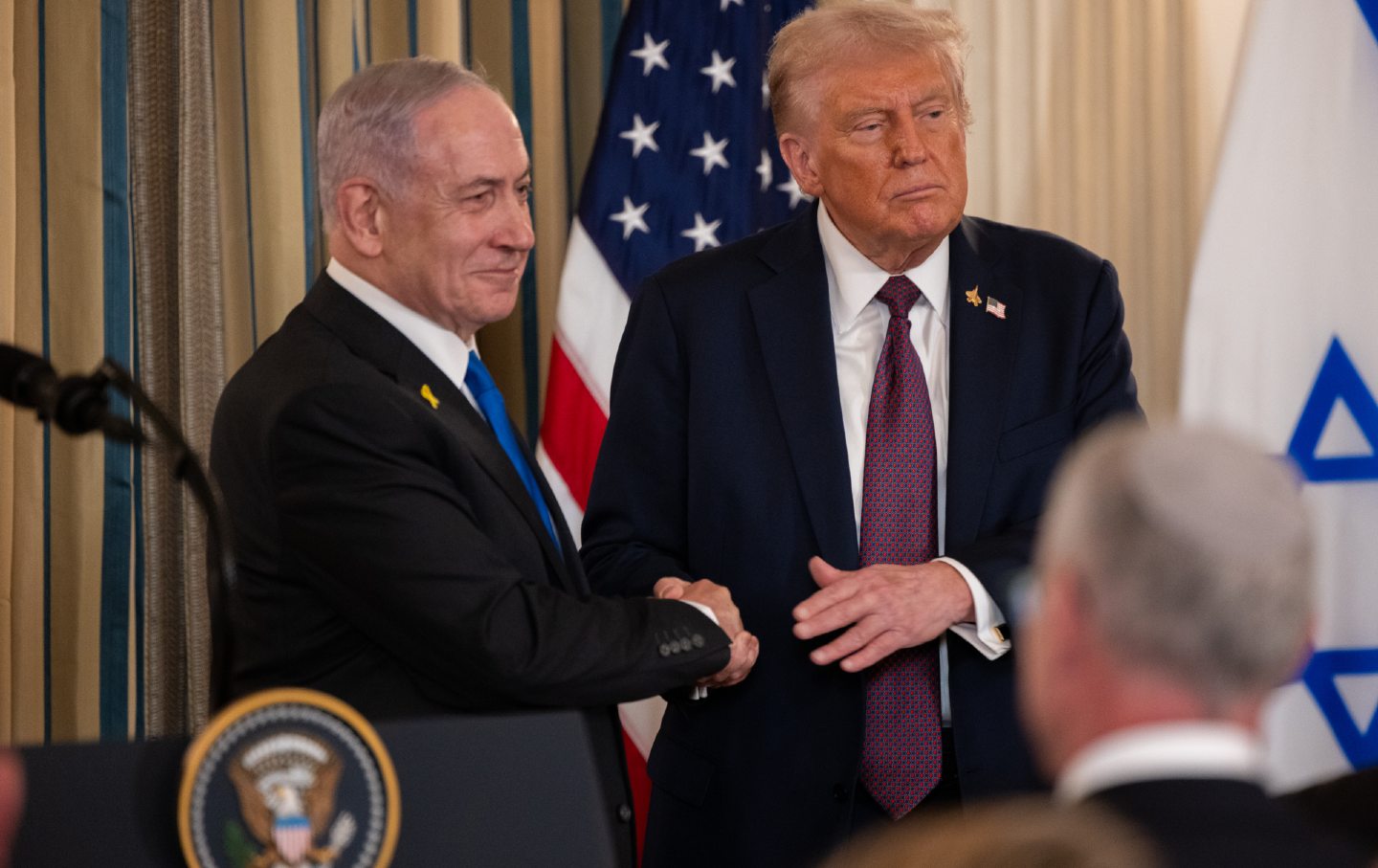
The Gaza Plan does not promise an end to Israel's genocide, but it does promise an indefinite occupation.



